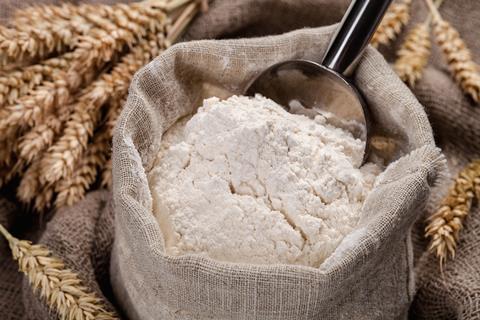
The government has launched a consultation on the amount of folic acid to be added to non-wholemeal flour as part of a review of the Bread & Flour Regulations.
The Department for Environment, Food and Rural Affairs (Defra) announced in September 2021 that it would proceed with plans to make the fortification of flour with folic acid mandatory.
Now it is seeking views from stakeholders across the UK’s four nations on its proposals of adding 250 micrograms of folic acid per 100 grams of non-wholemeal flour.
Since the Second World War, flour has been fortified with calcium, iron, niacin and thiamine during milling. The latest announcement means the UK joins 80 countries, including Australia, New Zealand and Canada, which are adding folic acid to staple food products to combat neural tube defects.
Defra believes the proposed cost of the changes would be around £6.5m for industry in sourcing and adding colic acid to flour, £4,600 for industry and £19,000 for enforcement respectively in refamiliarisation with the legislation, plus one-off re-labelling costs for products made from flour as the legislation which set the requirements on food labelling (Regulation 1169/2011) requires the fortificants to be shown in the ingredients listing.
The proposal excludes wholemeal flour and other milled grains and flours, including those that are gluten free from mandatory fortification, providing an alternative non-fortified option for consumers.
Defra food minister Victoria Prentis said: “It is vital that we consult on this issue to understand views on all of our proposed amendments to bread and flour regulations.
“Folic acid fortification is an example of how we can ensure the public receive the nutrition we require through everyday food products.”
The consultation closes on Wednesday 23 November and is available here.
































No comments yet